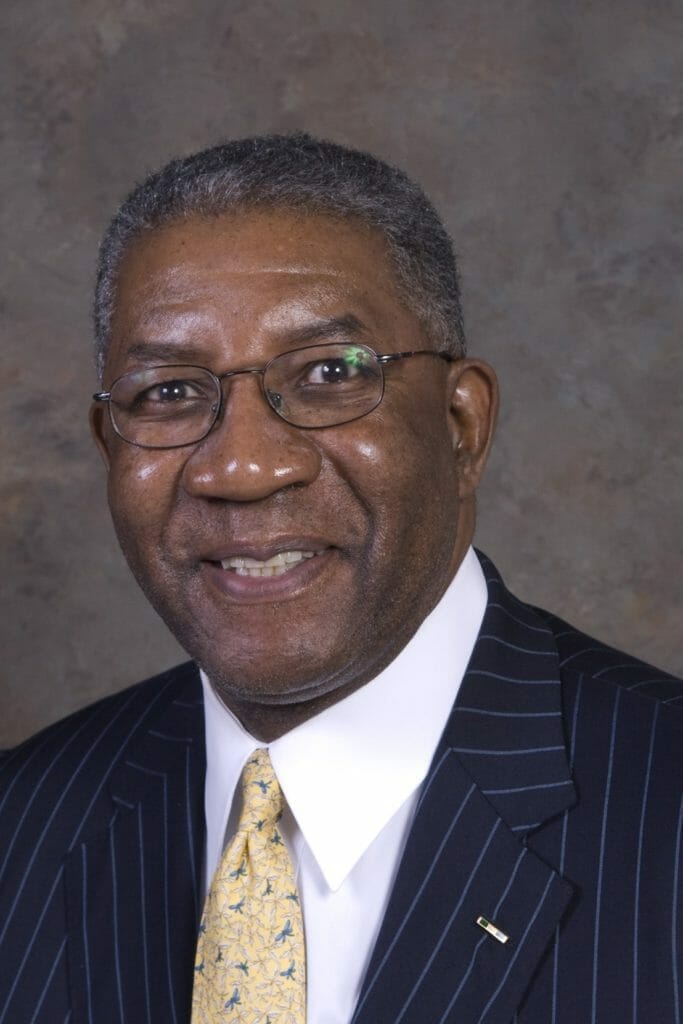By Wendell Griffen
On the evening of May 31, 1921, a mob of white people attacked the homes and businesses of Black people who lived in the thriving Greenwood community considered the “Black Wall Street” in Tulsa, Oklahoma. Throughout that night and into the following day, June 1, the white mob burned homes, churches, and even a school. Here are links to background accounts:
a 2021 National Public Radio retrospective about the event
the online report about the Tulsa Race Massacre from Britannica
the February 2001 official report contained in that report
Dr. Jerrolyn Eulinberg’s womanist perspective on the Tulsa Race Massacre
Hundreds of people—some estimates place the death toll of over 300—were killed. Airplanes bombed the Greenwood community. Official records relating to an investigation of the massacre somehow went missing. No white person was prosecuted for the arson, looting, and murders of Greenwood residents. Neither the City of Tulsa nor the State of Oklahoma paid a penny as reparation to the survivors of the massacre.
For decades, the Tulsa Race Massacre was not part of educational material in Oklahoma.
This painful history cannot be justified. It is a telling indictment about the moral character of the people who committed the most horrific act of racialized terrorism against Black people in Oklahoma history. The calculated, continued, and inexcusable refusal of white Oklahomans—including people who profess to be guided by religious values—to atone for it since 1921 is abominable.
More than a century of willful concealment of this heinous crime against humanity by the political, religious, commercial, educational, and health leaders of Oklahoma requires reparatory measures before that colossal breach of human community can heal. Those reparatory measures are prerequisites to racial justice. They demand much more than token statements of apology, symbolic gestures, and professions of regret.
Reconciliation for systemic racial injustice is possible! However, that possibility can only be realized by reparatory justice and continuous reckoning with the consequences of the evils committed, condoned, concealed, and which continue from what happened in Tulsa 102 years ago. Repentance is the theological word for that ongoing reckoning.
Reparation requires that people first do the painful constant work of reckoning with the physical, generational, social, emotional, moral, political, commercial, and environmental consequences of more than a century of transgenerational racial injustice. Reckoning is not casual, transitory, or ceremonial work. The work is consequential, and it must always be proportionate to the past and continuing harms caused by racial injustice.
It is telling that so many people who profess to be guided by religious values are unwilling to engage in the reckoning required in this reparatory process. Those people are not dim-witted or demonic. At best, they are victims of transgenerational denial and guilt about racialized trauma they cannot bear to confront. At worse, they are trapped by moral cowardice, deceit, and robbery that was socially, religiously, legally, and culturally sanctioned for more than a century when it comes to the Tulsa Race Massacre—and for more than four centuries when one reckons with the history of white supremacy and racial injustice in the United States.
Reparatory justice required for the Tulsa Race Massacre of 1921 begins when current and future generations of Oklahomans reckon with the consequences of more than a century of sanctioned, sacralized, and systemic denial, cowardice, deceit, and robbery. The reckoning process of racial injustice is always painful. However, racial reconciliation can never happen without it.
Reconciliation for systemic racial injustice is possible! However, that possibility can only be realized by reparatory justice and continuous reckoning with the consequences of the evils committed, condoned, concealed, and which continue from what happened in Tulsa 102 years ago. Repentance is the theological word for that ongoing reckoning.
The pity is that so many people are morally and ethically compromised by white supremacy, privilege, and hegemony to be trustworthy agents of repentance, let alone lead others who seek to experience repentant—thereby reparatory—lives. That is not only a pity; it is a continuing trauma of the Tulsa Race Massacre that will not be remedied by the repentant reckoning of reparations.

Wendell Griffen is is Pastor of New Millennium Church in Little Rock, Arkansas, a state court circuit (trial) judge, owner/CEO of Griffen Strategic Consulting (a consulting practice focused on cultural competency, equity, and inclusion), a trustee of the Samuel DeWitt Proctor Conference, and an author, advocate, and activist concerning faith, justice, and public theology. He holds degrees in political science and law from the University of Arkansas, is a U.S. Army veteran, and is author of the book The Fierce Urgency of Prophetic Hope and three Internet blogs (Wendell Griffen on Cultural Competency, Justice Is a Verb!, and Fierce Prophetic Hope).”




Recent Comments